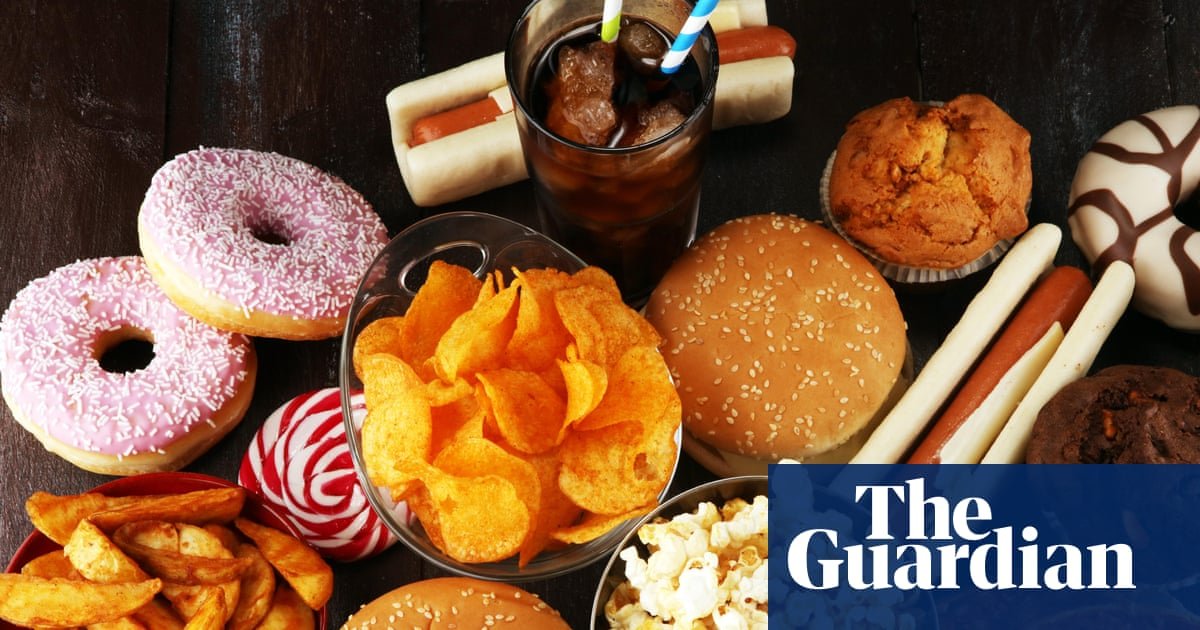According to the world’s largest review, ultra-processed foods (UPF) are linked to harm in every major organ system of the human body and pose a seismic threat to global health.
UPF is rapidly displacing fresh food in the diets of children and adults on every continent, and is linked to increased risk of a dozen health conditions, including obesity, type 2 diabetes, heart disease and depression.
A review of the evidence suggests that the rapid increase in UPF intake worldwide is being driven by profit-driven corporations using a number of aggressive tactics to increase consumption, minimize scientific debate, and prevent regulation.
The findings of a series of three papers published in The Lancet come as millions of people are increasingly consuming UPF such as ready meals, cereals, protein bars, fizzy drinks and fast food.
In the UK and US, more than half the average diet now includes UPF. For some people, especially those who are young, poor, or coming from deprived areas, a diet containing 80% UPF is normal.
Evidence reviewed by 43 of the world’s leading experts shows that diets with high UPF are associated with higher risks of overeating, poorer nutritional quality and harmful chemicals and additives.
A systematic review of 104 long-term studies conducted for the series found that 92 reported a greater risk of one or more chronic diseases and early death from all causes.
Professor Carlos Monteiro, professor of public health nutrition at the University of Sao Paulo, one of the authors of the Lancet series, said the findings underline why urgent action is needed to tackle UPF.
“The first paper in this Lancet series indicates that ultra-processed foods harm every major organ system in the human body. The evidence strongly suggests that humans are not biologically adapted to consume them.”
He and his colleagues in Brazil came up with the NOVA classification system for foods. It groups them by level of processing, ranging from one – unprocessed or minimally processed foods, such as whole fruits and vegetables – to four: ultra-processed.
This category is made up of products that have been manufactured industrially, often using artificial flavors, emulsifiers, and colors. These include soft drinks and packaged snacks, and are extremely tasty and high in calories but low in nutrients.
Monteiro said these are designed and marketed to displace fresh food and conventional food while maximizing corporate profits.
Critics argue that UPF is an undefined category and that existing health policies, such as those aimed at reducing sugar and salt consumption, are sufficient to combat the threat.
Monteiro and his co-authors acknowledged legitimate scientific criticisms of NOVA and UPF – such as the lack of long-term clinical and community trials, emerging understanding of mechanisms, and the existence of subgroups with different nutritional values.
However, he argues that future research should not delay immediate action to tackle the UPF crisis, which he says is justified by the current evidence.
“The increasing consumption of ultra-processed foods is reshaping diets around the world, displacing fresh and minimally processed foods and meals,” Monteiro warned.
“This change in what people eat is driven by powerful global corporations that make huge profits by prioritizing ultra-processed products, supported by mass marketing and political lobbying to prevent effective public health policies to support healthy eating.”
The second paper in the series proposes policies to regulate and reduce UPF production, marketing, and consumption. Although some countries have introduced regulations to improve food products and control UPF, “the global public health response is still nascent, as was the tobacco control movement decades ago”.
The third paper states that global corporations, not individual choices, are driving the growth of the UPF. The authors stated that UPF is a major cause of the diet-related “chronic disease epidemic”, in which food companies put profit above all else.
The main obstacle to protecting health is “Internationally coordinated corporate political activities through front groups, multi-stakeholder initiatives, and global networks of research partners to counter opposition and block regulation”.
Series co-author Professor Barry Popkin, from the University of North Carolina, said: “We call for the inclusion of UPF-marked ingredients on front-of-package labels, along with highly saturated fat, sugar and salt, to prevent unhealthy ingredient substitutions and enable more effective regulation.”
The authors also proposed stronger marketing restrictions for advertisements specifically targeted at children, as well as banning UPFs in public places such as schools and hospitals, and placing limits on UPF sales and shelf space in supermarkets.
One success story is Brazil’s national school meal program, which has eliminated most UPFs and will require 90% of food to be fresh or minimally processed by 2026.
Scientists not involved in the series broadly welcomed the review of the evidence, but also called for more research into UPF, cautioning that an association with health harms may not imply causation.
